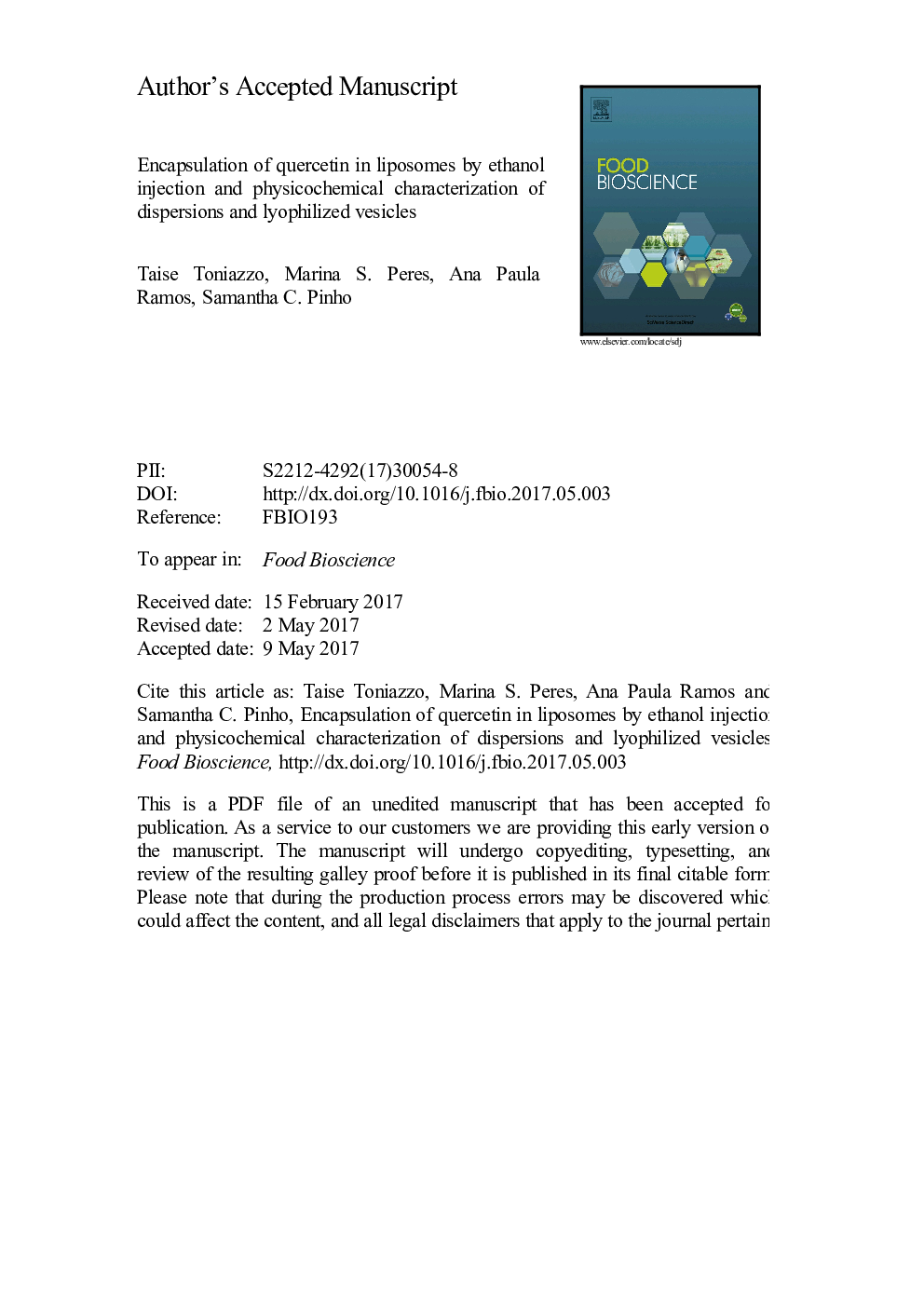| Article ID | Journal | Published Year | Pages | File Type |
|---|---|---|---|---|
| 4753091 | Food Bioscience | 2017 | 38 Pages |
Abstract
Quercetin is a flavonoid with high antioxidant capacity that provides beneficial biological effects. However, the absorption rate of quercetin in the gastrointestinal tract is low but encapsulated lipid matrices, such as liposomes, can be useful to enhance its bioavailability. In this study, quercetin-loaded liposome dispersions were produced by ethanol injection and 12Â mM of phospholipid encapsulating 0.3% molar quercetin was suitable to evaluate physicochemical stability. The Langmuir monolayer technique indicated that it was possible to encapsulate a maximum of 0.3% molar quercetin in liposomes. Quercetin-loaded liposome dispersions presented a mean hydrodynamic diameter of 264Â nm and a zeta potential of â17Â mV, which is typical for small unilamellar vesicles produced by ethanol injection. Sucrose was used as the lyoprotectant (mass sucrose: phospholipid ratio, 4:1), and the encapsulated quercetin had not degraded after 100 days of storage. In addition, the lyophilized liposomes presented a low propensity for water adsorption and low hygroscopicity. Such behavior is considered highly suitable for stability in dried foods.
Related Topics
Physical Sciences and Engineering
Chemical Engineering
Bioengineering
Authors
Taise Toniazzo, Marina S. Peres, Ana Paula Ramos, Samantha C. Pinho,
